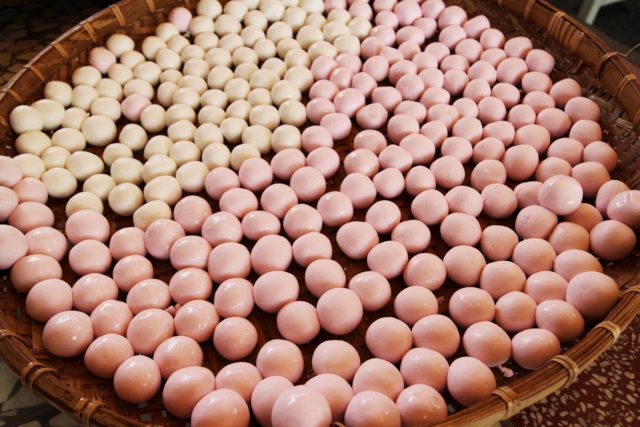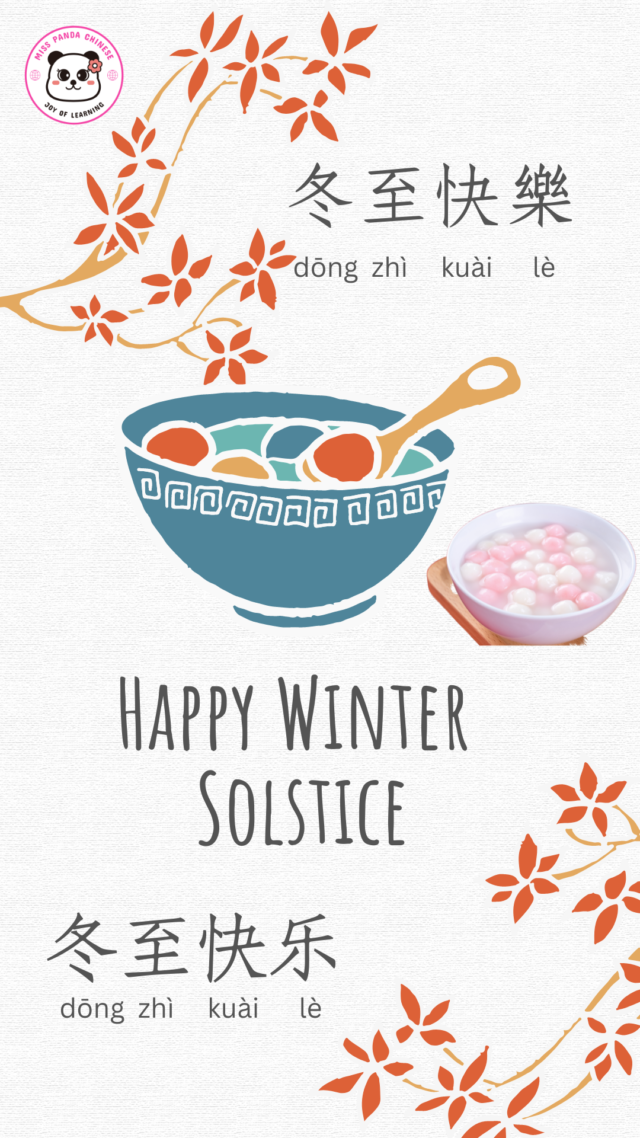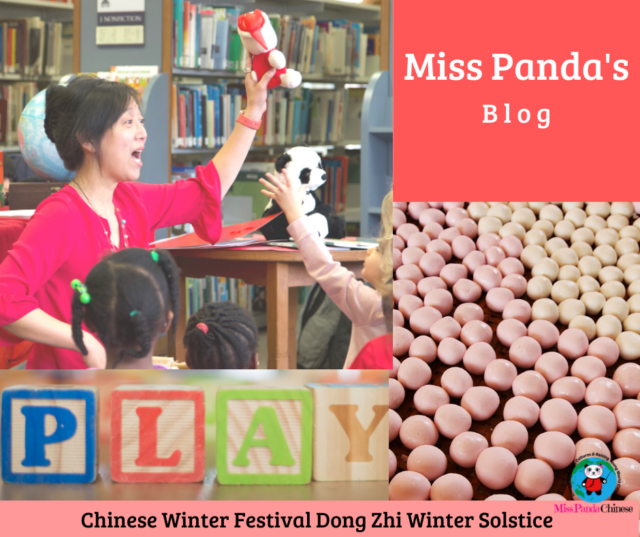Chinese Winter Festival Dong Zhi
Winter Solstice is the most important day among the 24 Chinese solar terms. There are six Chinese solar terms in each season. And, you already know the most important festival in every season.
There is the Spring Festival for the spring. Spring Festival is the Lunar New Year. When the Spring Festival arrives that means the spring is coming. During the Spring Festival, Chinese people celebrate with the family, enjoy the achievements from the past year, and recharge for a brand new year.
When the Dragon Boat Festival is celebrated that means the weather is going to get hot. Summer is here. As for the arrival of the Mid-Autumn Festival, that indicates the weather is about to turn cool. The fall season is in.
Then, when the Winter Festival Dong Zhi arrives that means winter is here and the New Year is coming. Chinese people celebrate Dong Zhi, the Winter Festival winter solstice with special dishes and you can read about it here. Chinese people from the South and North have regional preferences. Which one would be your family’s choice?
When the weather gets cold and the snow falls it is also time for another International Ice and Snow Sculpture Festival in Harbin province in China. Harbin is located in Heilongjiang province which is in the northeastern part of China bordering Russia.
Stay warm and enjoy winter no matter where you are. Read the story about Dong Zhi here!
World Culture for Kids – Brain Teasers for the Chinese Winter Festival:
-
Does the Chinese Winter Festival always fall on the same day every year?
-
冬至每一年都是同一天嗎?| 冬至每一年都是同一天吗?
-
What are some flavors for the Winter Festival rice balls?
-
冬至吃的湯圓有什麼口味呢?| 冬至吃的汤圆有什么口味呢?
-
There are 24 Chinese Solar Terms. Which one is the most important one which tells people that the New Year is coming?
-
中華文化有二十四節氣。哪一個節氣告訴大家農曆年就快要來了呢?| 中华文化有二十四节气。那一个节气告诉大家农历年快要来了呢?
-
Can you find the Heilongjiang province in China on a world map?
-
你可以在世界地圖上找到中國的黑農江省嗎?| 你可以在世界地图上找到中国的黑龙江省吗?
-
What is the weather like where you live on winter solstice? How about the weather in Heilongjiang province in China on winter solstice?
-
你住的地方天氣怎麼樣?中國黑龍江省的天氣怎麼樣?| 你住的地方天气怎么样?中国黑龙江省的天气怎么样?
-
Is your city’s weather colder than in Heilongjiang province?
-
你住的地方天氣比黑龍江冷嗎?| 你住的地方天气比黑龙江冷吗?

Miss Panda Chinese is an associate of Amazon and earns commission from qualified purchases at no cost to you
Exploring Winter Solstice Around the World
-
St. Lucia’s Day is a festival of lights celebrated in Scandinavia around the time of the winter solstice.
-
Midwinter celebration in the Antarctic.
-
Saturnalia – an ancient Roman solstice celebration dedicated to Saturn, the god of agriculture and time.
-
Shab-e Yalda – Iranians celebrate the triumph of Mithra, the Sun God, over darkness. Shab-e Yalda, is an ancient festival – its literal translation is Night of Birth.
-
Inti Raymi – in Peru, the winter solstice is celebrated in June. The Inti Raymi (Quechua for “sun festival”), takes place on the solstice. It is a time to honor Inti, the sun god.
-
Toji – the Japanese winter solstice is a sacred time for farmers as they welcome the sun back to take care of their crops after the cold winter days. The traditions include taking a yuzu yu which means yuzu bath (yuzu is similar to pomelo but smaller) for good health, eating kabocha (Japanese pumpkin) for good luck, and huge bonfires on Mount Fuji on December 22 each year.
What celebration do you have at home? Happy Chinese Winter Festival, Dong Zhi! = dōng zhì kuài lè – 冬至快樂 | 冬至快乐
image by pixabay
posted update 2024



Very interesting, xie xie 👍👍
Hi Ms Panda,
Thank you for taking that time to explain solstice to us – with Chinese perspective.
We are in Australia- the southern hemisphere- so we just had Summer Solstice.
Funny my mum – she called to remind me it’s 冬至 !
Jennifer, Thank you for sharing this with me. Family culture and heritage culture can be such an interesting combination. Where we are shows us what we need to put into consideration from various perspective. Happy Lunar New Year to you and your family! Many are looking forward to warm days and you are in it already. May the Dragon bring you great fortune!